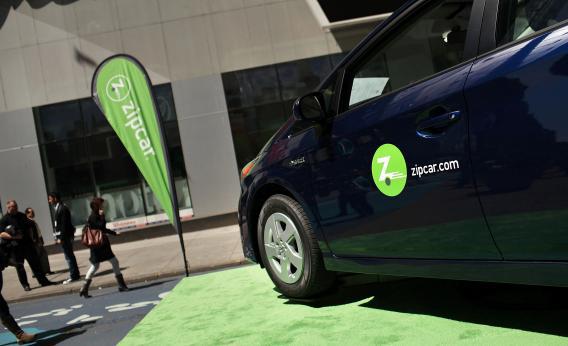Zipcar, one of the pioneering “sharing economy” companies, is being bought today by the Avis Budget Group (proprietors, as I’m sure you can guess, of the Avis and Budget rental car brands) for $500 million in cash.
The strategic logic of the deal is very clear. A year ago, there were four major rental car concerns in America—Avis Budget, Dollar Thrifty, Hertz Global, and Enterprise. Hertz and Enterprise have both launched in-house hourly rental operations to compete directly with Zipcar. Avis Budget bought Dollar Thrifty a few months ago. So that left the rental car world with two players that do both hoursly and traditional rentals, plus Zipcar and Avis. A meger gives Zipcar investors a nice exit while creating a very strong firm.
Zipcar’s big outstanding problem is that demand for Zipcars is highly spiky. People who want to use a car to commute to work are going to want to own their own vehicle. And people generally need to work during weekdays. Which means that demand for spot rentals is very highly concentrated on the weekends, which makes it hard for Zipcar to manage inventory efficiently. Avis says that combining its fleet with Zipcar’s will make it much easier to meet those demand peaks, as individual vehicles can switch from hourly rental to traditional rental on a day-by-day basis.
One reason companies like Zipcar and Parking Panda are important is that they change urban political economy. There’s been a mini-trend in recent years toward city planning departments embracing reducing regulatory parking minimums and selective upzonings. But even though those ideas are catching on in policy circles, the politics around them remains very constrained and dominated by risk aversion and incumbent interests. The arrival on the scene of businesses whose models benefit from parking and zoning liberalization can bring a lot more balance to the debate, and certainly Zipcar has quietly been a player in a lot of progressive urban reforms. A post-merger company could either end up being a bigger voice on that front, or else a more muted one that’s less specifically interested in the topic.
